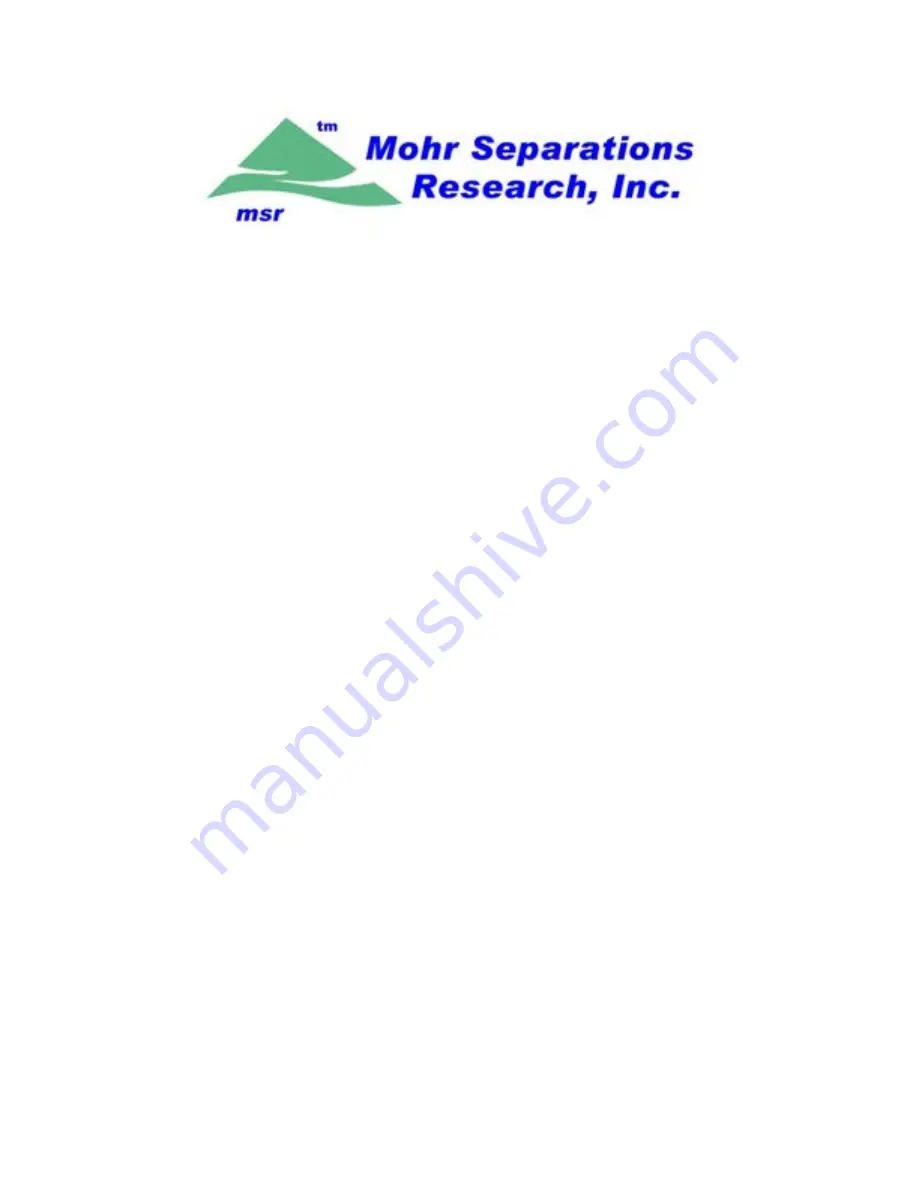
INSTALLATION AND OPERATING MANUAL
MOHR SEPARATIONS RESEARCH
MODEL: MSR-11 P OIL-WATER SEPARATOR
BACKGROUND AND INTRODUCTION
The MSR Model MSR-11 P Oil-Water Separator is a passive gravity operated
system for the separation of oil from oil-water mixtures. The design utilizes the
difference in specific gravities between oil and water (buoyancy force), enhanced
by the use of Mohr Separations Research Inc. modular coalescing system. The
separator is designed to receive oily water in pumped flow at a relatively low
(less than 15 US GPM maximum) flow rate. Please see the process flow
simulation in the appendix. The separator vessel is constructed of heavy duty ½”
thick polypropylene, utilizing all welded construction. The coalescing plates are
manufactured of an oleophilic ("oil-loving") polypropylene.
For purposes of this manual, please see the attached drawing. Information from
the manufacturers of the accessories (if any) is provided in the appendix.
The oil in this mixture is usually in the form of droplets of various sizes. As the oil-
water mixture flows through the plates, the oil droplets rise within the water, due
to their buoyancy. As the droplets rise, they come in contact with the underside of
the plates and coalesce, forming a thin film of oil on the underside of the plates.
This film flows upward along the plate surface until it reaches the plate peaks. Oil
accumulates in a thicker oil layer on the underside of the plates until it
disengages and moves up through the module. Holes have been provided in the
module plates at the peaks so that the oil collected in this manner may percolate
through the holes and eventually come to the water surface in the separator.
The separated oil that comes to the top flows out and over the oil overflow weir
into the oil holding tank, which is located downstream of the media. The clean
processed water is discharged via the outlet underflow/overflow into the clean
water tank and thence to the customer's downstream system. The outlet water
and collected oil must be able to flow by gravity (or pumped if outlet pump is
provided) to their respective containers, so the system must be elevated slightly
so that this may happen.







